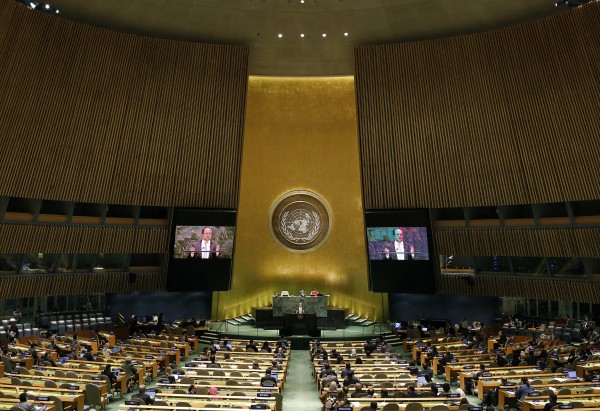Sponsored Content
Austria's Rejection of UN Resolution Raises Questions Within the Government
Austria voted against a resolution in the UN General Assembly calling for an immediate ceasefire and improvement in the humanitarian situation in the Middle East. The decision, made by the ÖVP-led government, has caused tensions within the coalition, especially with the Green coalition partner, which has distanced itself from the decision.
 The UN General Assembly adopted a resolution to improve the humanitarian situation and for an immediate ceasefire in the Gaza Strip. / Picture: © BMEIA Bundesministerium für Europa, Integration und Äußeres / Dragan Tatic / Flickr Attribution 2.0 Generic (CC BY 2.0)
The UN General Assembly adopted a resolution to improve the humanitarian situation and for an immediate ceasefire in the Gaza Strip. / Picture: © BMEIA Bundesministerium für Europa, Integration und Äußeres / Dragan Tatic / Flickr Attribution 2.0 Generic (CC BY 2.0)
Green Party foreign policy spokeswoman Ewa Ernst-Dziedzic said the decision to vote against the resolution had "not been agreed upon" within the coalition, ORF reported. She added that an abstention, such as the one chosen by Germany, would have been more appropriate from the Greens' point of view. She justified this stance…
or Log In
Fast News Search





